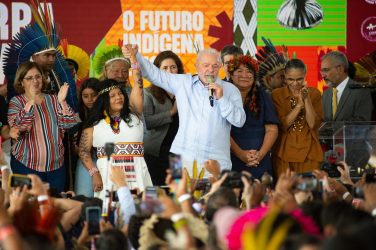Environmental issues have figured prominently in Brazil as of late, and the Brazilian Forest Code is a piece of legislation which reveals the country’s ongoing efforts to address th0e subject of government policy related to such concerns.
With Bolsonaro’s recent victory, Brazil has embarked on a path towards reforming policy related to natural resource law, embodied by the Forest Code itself.
Bolsonaro is decidedly against initiatives designed to preserve the environment. He has vowed to eliminate Brazil’s environmental ministry and merge it with the agricultural ministry, while removing Brazil from international climate talks.
Furthermore, he has moved to pull Brazil out of the 2015 Paris agreement, while at the same time supporting the primacy of agricultural productivity. The intended revision of Brazilian Forest Code is a case in point.
The Brazilian Forest Code, which is designed primarily to protect vegetation and land use, has roots dating back for decades. Conceived in 1965 to support sugarcane and coffee interests under the military dictatorship, the Code has been amended over the years, most recently in the period of 2012-2018.
The Forest Code underwent significant changes in 2012 under president Dilma Rousseff, whose administration sought to expand the scope of agricultural interests, but in the process, sacrificed environmental concerns.
Generally speaking, the Code represents the historical attempt to limit Amazonian deforestation, while at the same time, promoting agricultural development.
As an example, in February of this year, Brazil’s Supreme Court decided that illegal deforestation in the Amazon was permissible, rejecting environmental concerns in the interest of agricultural development – production of beef, sugar, corn, soybeans, have remained significant, as Brazil can only deforest 20% of its land, and must maintain 80% of its rainforest.
Additionally, Bolsonaro’s intent to integrate indigenous peoples into mainstream Brazilian society, coupled with his support of illegal deforestation, loggers, poachers, mining, farming and ranching, reveal a leader more concerned with agricultural development than the social and cultural protection of indigenous populations and their land.
There is a great deal of uncertainty over what will happen to the Forest Code and environmental policy under the Bolsonaro administration.
Beginning with a radical departure from Brazil’s liberal posture of supporting the UN Earth Summit on Climate Change in 1992, Bolsonaro has proved determined to abandon his country’s role as an upcoming host of UN Climate Talks.
He has also expressed frustration with the Brazilian Institute of Environment and Renewable Natural Resources, IBAMA, which oversees implementation of environmental policy and the Forest Code.
Because he ignores key issues such as biodiversity, deforestation, and licenses for protected land, Bolsonaro will certainly meet with resistance from Congress and the courts in his attempt to revise the Forest Code.
To the dismay of environmentalists, conservationalists, NGOs, and indigenous populations alike, Bolsonaro will have to effectively coordinate reform if he is to forge a compromise between agricultural and environmental interests in Brazil.
If he meets with success, Bolsonaro can put his country on course to address important domestic and international issues such as climate change, biodiversity and the need for clean water, but until that time, both Brazil’s populace and the international community must continue to endure inertia and stagnation within the Brazilian government.
The indecision in reform of the Forest Code over the past few months and years indicates that only attempts at political and policy reconciliation can set the stage for a heightened awareness of the agricultural and environmental concerns in the years to come.












